#robert lieberman
Text

11 notes
·
View notes
Text


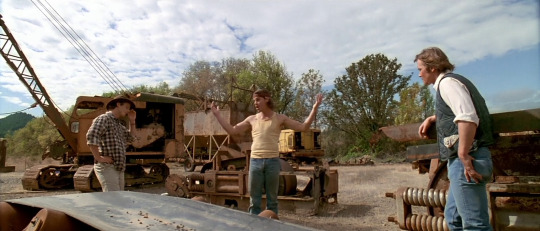


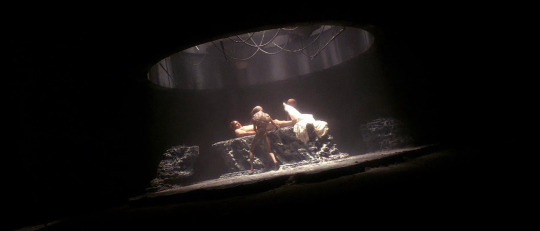

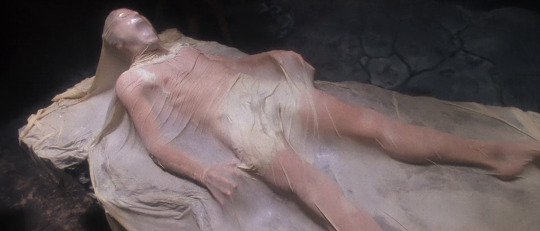
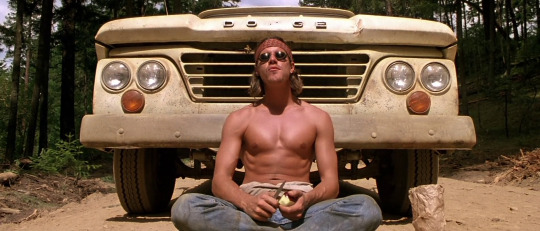
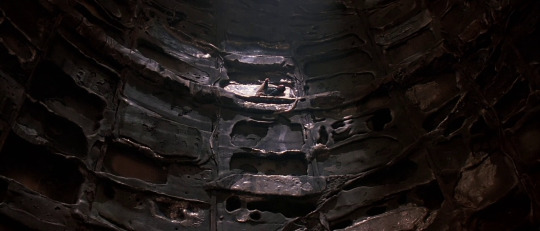
Fire in the Sky (1993, Robert Lieberman)
#fire in the sky#robert lieberman#1993#alien#UFO#horror#alien abduction#close encounters#UFOlogy#UFO encounters#robert patrick#travis walton#d. b. sweeney
10 notes
·
View notes
Photo
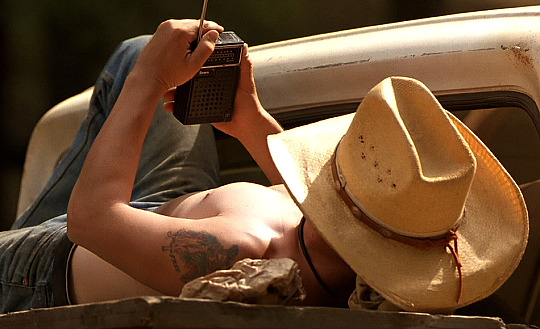
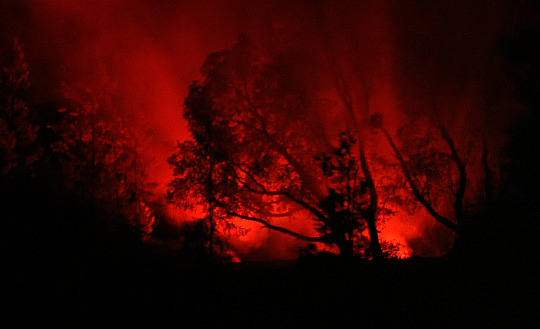
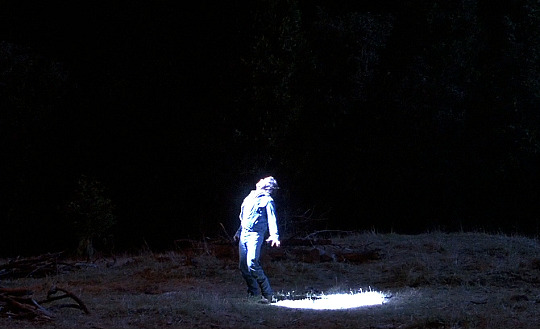




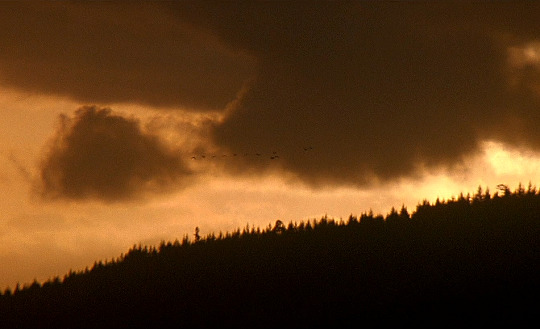

Fire in the Sky (1993) // dir. Robert Lieberman
126 notes
·
View notes
Text

Fire in the Sky 1993 dir. Robert Lieberman
1 note
·
View note
Text
Cult Faction News Blast 18/7/23
In this week’s News Blast we talk Writer Strikes, Star Wars, Marvel, Disney, Robert Lieberman, He-Man: Revelations and a whole lot more…
https://cultfaction.com/wp-content/uploads/2023/07/NEWS-18th-JULY-18-JULY.mp3

View On WordPress
#28 Days Later#Alita: Battle Angel. Doom Patrol#Ben Affleck#Beyond Paradise#Constantine#Deadpool#Disney#Doom Patrol#He-Man: Revelations#Jennifer Garner#Jimmy Weldon#Manny Coto#Marvel#Robert Lieberman#Ryan Reynolds#Star Wars#Willy Wonka#Wolverine
0 notes
Text
#Fire in the Sky#D.B Sweeney#Robert Patrick#Robert Lieberman#Aliens#Alien Abduction#Craig Scheffer#movies#film#movie review#film review#movie critic#movie#film critic#film criticism#movie criticism#horror#Sci-Fi#Science Fiction#Fiction#Horror#Horror movies#Horror in the 90s
0 notes
Photo

George Maciunas - Flux Year Box 2 (c.1968)
Eric Andersen, George Brecht, John Cale, John Cavanaugh, Albert Fine, Ken Friedman, Fred Lieberman, George Maciunas, Yoko Ono, Benjamin Patterson, Willem de Ridder, James Riddle, Paul Sharits, Bob Sheff, Stan VanDerBeek, Ben Vautier, Robert Watts
#George Maciunas#Eric Andersen#George Brecht#John Cale#John Cavanaugh#Albert Fine#Ken Friedman#Fred Lieberman#Yoko Ono#Benjamin Patterson#Willem de Ridder#James Riddle#Paul Sharits#Bob Sheff#Stan VanDerBeek#Ben Vautier#Robert Watts#galleryIII
72 notes
·
View notes
Text
GONE FISSION
Opening in theaters this weekend:
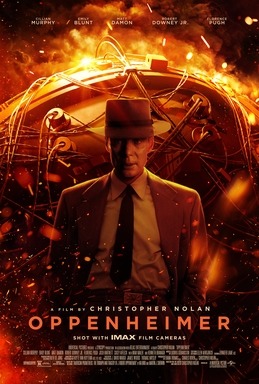
Oppenheimer--This biopic splits time the way its hero splits the atom. Narrative is fissionable to writer-director Christopher Nolan; he skips back and forth between episodes of Oppenheimer (Cillian Murphy) as a bumbling student, then as a philandering rising star in the new field of quantum physics, then as the determined yet haunted lord of Los Alamos, then as a post-bomb martyr to '50s era red-baiting. It glides along smoothly through its fractured scheme, beautifully shot by Hoyt van Hoytema in black and white and varyingly muted shades of color depending on period and point of view, and pushed along by a solemn Philip Glass-esque score by Ludwig Göransson.
Often crowned by a horizontal wide-brimmed preacher-style hat that makes him look like Brad Dourif in Wise Blood, Murphy uncannily captures the bursting, wide-eyed, near-ecstatic face that we see in photos of Oppenheimer. But he manages to give the performance a human dimension, with everyday foibles and touches of humor. He's not a pageant figure.
Murphy carries a star presence. But he's very ably supported by a huge, colorful gallery of star character players: Robert Downey Jr. as AEC Chairmen Lewis Strauss and Josh Hartnett as Ernest Lawrence and Benny Safdie as Edward Teller and Tom Conti as Albert Einstein and David Krumholtz as Isidore Rabi, Oppenheimer's menschy colleague who makes sure he eats and nudges his conscience, and Matthew Modine and Casey Affleck and Kenneth Branagh and Rami Malek and Alden Ehrenreich, to name only a few.
They're all entertaining, but two in particular jolt the movie to life: Florence Pugh as Oppenheimer's joyless lover Jean Tatlock and Matt Damon as the practical-minded, professionally unimpressed Leslie Groves, representing us laypeople in his deadpan, flummoxed scenes with Murphy. For a while it seems like Emily Blunt is underserved as Kitty Oppenheimer, but near the end she gets a juicy, angry scene opposite AEC lawyer Roger Robb (Jason Clarke), who has underestimated her.
Other than maybe a few too many scenes of the young "Oppie" having visions that look like the psychedelic mindtrip at the end of 2001, there was no point where I found Oppenheimer less than absorbing. Few would suggest that this ambitious, superbly acted, superbly crafted film isn't a major, compelling work, a vast expansion on Roland Joffé's watchable but modest Fat Man and Little Boy from 1989. If Nolan's film isn't quite completely satisfying, there could be two reasons.
One is that trying to arrive at a moral conclusion about this movie's hero seems impossible. Put (too) simply: on the one hand, Oppenheimer won World War II for the good guys and checked fascism (not checkmated it, alas) for more than half a century. On the other hand, his invention has the potential to ruin the world for everybody. Both can be true, and the ambiguity is unresolvable.
Another problem with the film, however, is a matter of simple showmanship. Back in 1994, James Cameron brought his silly action picture True Lies to a point where Arnold Schwarzenegger and Jamie Lee Curtis kiss while, far in the distance, we see a mushroom cloud erupt on the horizon. Triumphant, but then Cameron pushed his luck, piling on one last struggle with the villain in a Harrier jet. I remember thinking (and writing) at the time that when your hero and heroine kiss in front of a mushroom cloud, the movie is over.
Oppenheimer, obviously a very different movie, is uneasily structured in the same way. The scenes leading up to the Trinity Test at White Sands in 1945 are riveting, pulse pounding. The explosion and the immediate aftermath, ending the war in Japan, is a stunning dramatic climax.
But then the movie keeps going, for another hour or so, detailing the war of spite and will between Strauss and Oppenheimer, and the revocation of Oppenheimer's security clearance. It's interesting, provocative material in itself, but it seems a little petty and trivial after the "I am become death; destroyer of worlds" stuff. Given Nolan's supposed consummate skill at scrambling sequence, couldn't he have somehow structured the movie to end with a bang and not a whimper?

Barbie--Something is rotten in the state of Barbieland. As this, her first live-action feature begins, our titular heroine finds herself haunted, right in the middle of raging dance parties at her Dreamhouse, by thoughts of death. Still more alarming, when she steps out of her pumps, her feet go flat to the ground.
To be clear, the Barbie in question, played by Margot Robbie, is "Stereotypical Barbie," the blond, inhumanly thin and leggy iconic version of the Mattel doll. She shares the relentlessly cheery pink-plastic realm of Barbieland with countless other Barbies of every race and body shape and profession, all happy and accomplished and untroubled and mutually supportive. They're dimly aware of us in the "Real World"; they believe that their own harmony has created an example that has led to female empowerment and civil rights over here.
The Barbies also share Barbieland with Ken (Ryan Gosling) and countless variant Kens, as well as Ken's featureless friend Allan (a perfectly cast Michael Cera). But the guys exist entirely as accessories to the relatively uninterested Barbies. Ken's unrequited fascination with Barbie makes him subject, unlike the Barbies, to dissatisfaction.
Barbie goes for advice to "Weird Barbie" (Kate McKinnon), whose hair is frizzy and patchy and who's stuck in a permanent split. She's told that her troubles come from the dark feelings of somebody who's playing with her in our reality, so she sets out on a quest to the Real World, emerging in Venice Beach. Barbie connects with a mom and teenage daughter (America Ferrera and Ariana Greenblatt) whose relationship is strained; she's also pursued by the all-male board of Mattel, led by Will Ferrell. Ken, meanwhile, learns about our patriarchy, likes what he hears, and heads back to Barbieland alone to institute it, with himself at the top.
Mattel was founded in 1945, the same year as the Trinity Test, and there are probably feminist social critics who would argue that Barbie, invented in 1959 by Mattel co-founder Ruth Handler (well played by Rhea Perlman in the film), has wreaked only a little less havoc on the modern psyche than Oppenheimer's gadget. Even though I'm in exactly the right generational wheelhouse (I was born in 1962), my own childhood experience with Barbie was very limited, and thus so were my nostalgic associations with her.
Even so, this nutty fantasy, directed by Greta Gerwig from a brilliant script she wrote with Noah Baumbach, made me laugh from its inspired first scene to its Wings of Desire finish. Narrated in the droll, arch tones of Helen Mirren, it manages to come across as both an ingenious pop-culture lampoon/celebration and an unpretentious but surprisingly heartfelt deep dive into the implications of the Barbie archetype. I wasn't a big fan of Gerwig's 2019 version of Little Women, but here she builds her world with the freedom of, well, a kid playing with dolls, but also with the confidence and adult perspective of an artist.
Not everything in the movie works; in the second half the narrative gets a little lost at times in some very strange musical numbers/battle scenes, and the whole thing comes close to going on a bit too long. And it's hard to say just who this movie is for. It hardly seems intended for little girls; however smart, they're too young for the commentary about female identity to mean much to them yet. It seems more like it's meant for adult women with both a fondness for and an ambivalence toward Barbie.
No doubt there are those who would also complain that, however witty and self-effacing, the movie amounts to a feature-length commercial for the brand. But in the age of Marvel and other such franchises, it seems a little late to object to this.
The revelation in the film is Margot Robbie. It seems ridiculous that she's able, in the role of freaking Barbie, to give a performance of such subtlety and nuance and shading and quiet, unforced wistfulness, but she does. And she gets to deliver the best last line of the year.
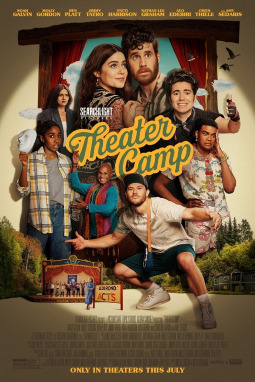
Theater Camp--Joan, the founder of "AndirondACTS," a slightly gone-to-seed theater camp in upstate New York, has fallen into a coma. The job of keeping the struggling camp afloat falls to her decidedly non-theatrical "crypto bro" son Troy. Meanwhile the devoted instructors work with the exuberantly happy campers to mount the shows, including an original musical about the life of poor comatose Joan (Amy Sedaris). Needless to say, all does not go smoothly.
The creators of this Waiting for Guffman-esque "mockumentary" comedy, Molly Gordon, Nick Lieberman, Ben Platt and Noah Galvin, know the world they're depicting well; all of them have been doing theater since they were small children. Gordon and Lieberman co-directed, from a script by all four; Platt and Gordon play Amos and Rebecca-Diane, the utterly enmeshed, co-dependent acting instructors and Galvin plays the low-profile tech director.
They capture the camaraderie and the sense of belonging that theater can give kids, and their affection for that world is unmistakable, but they're careful not to get too sentimental. The envies and resentments and passive-aggressive denigrations among theater folk, especially at this often professionally frustrated level, are vividly represented.
Getting laughs from the self-important vanities of theater people is pretty low-hanging fruit, I suppose, but Theater Camp is nonetheless often hilarious. The film also manages to get a little deeper at times, touching on the irony that while theater can create a haven and a community for misfit kids, this can generate its own clannishness and exclusionary snobbery, as in Amos and Rebecca-Diane's coldness toward the imbecilic but well-intentioned Troy, charmingly played by a sort of poor-man's Channing Tatum named Jimmy Tatro.
The real joy in Theater Camp, of course, is the acting: Platt, Gordon, Tatro, plus a few vets like Sedaris, Caroline Aaron and David Rasche bring the material to life. But as Glenn, the long-suffering backstage drudge who really ought to be onstage, Noah Galvin, who replaced Platt on Broadway in Dear Evan Hansen, is the revelation among the adults in the cast. He's a knockout.
The revelation among the kids playing the campers is, well, pretty much all of the kids playing the campers. There are some real singing, dancing and acting prodigies in this company. If there was a real theater camp somewhere with this kind of talent, their shows would sell out.
#oppenheimer#barbie#theater camp#greta gerwig#christopher nolan#margot robbie#cillian murphy#matt damon#florence pugh#emily blunt#ben platt#molly gordon#noah galvin#robert downey jr#ryan gosling#will ferrell#rami malek#kenneth branagh#tom conti#nick lieberman#jimmy tatro
12 notes
·
View notes
Link
The questions are:
Which party do they help?
Who will qualify on state ballots?
Will Biden speak up?
Will RFK Jr. coalesce the youth vote?
What will Joe Manchin do?
Read the article for some detailed considerations.
#third parties#jill stein#robert f kennedy jr#cornel west#dean phillips#marianne williamson#no labels#joe lieberman#joe manchin#2024
6 notes
·
View notes
Link
For now, Ewig wrote, the United States is not a competitive authoritarian regime. The results of the 2020 national elections and the institutional opposition to the insurrection in 2021 “helped to avoid that. But some U.S. states do look suspiciously competitive authoritarian.”
Why is democracy under such stress now? There are many answers to that question, including, crucially, the divisiveness inherent in the elevated levels of contemporary polarization that makes democratic consensus so difficult to achieve.
In an April 2021 paper, four scholars, Samuel Wang of Princeton, Jonathan Cervas of Carnegie Mellon, Bernard Grofman of the University of California, Irvine, and Keena Lipsitz of Queens College, address the basic question of what led to the erosion among a substantial number of voters of support for democratic principles in a nation with a two-century-plus commitment to this tradition:
In the United States, rules and institutions from 1790, when voters comprised white male landowners and slave owners in a nation of four million, were not designed to address today’s governance needs. Moreover, existing rules and institutions may amplify background conditions that drive polarization. The decline of civic life in America and the pluralism it once nurtured has hastened a collapse of dimensionality in the system.
Americans once enjoyed a rich associational life, Wang and his colleagues write, the demise of which contributes to the erosion of democracy: “Nonpolitical associations, such as labor unions, churches, and bowling leagues, were often crosscutting, bringing people from different backgrounds into contact with one another, building trust and teaching tolerance.” In recent years, however, “the groups that once structured a multidimensional issue space in the United States have collapsed.”
The erosion of democracy is also the central topic of a Feb. 13 podcast with Martin Wolf, a Financial Times columnist and the author of “The Crisis of Democratic Capitalism.” Wolf makes the case that “economic changes and the performance of the economy interacting produced quite a large number of people who feared that they were becoming losers. They feared that they risked falling into the condition of people who really were at the bottom.”
At the same time, Wolf continued, “the immense growth of the financial sector and the dominance of the financial sector in management generated some simply staggering fortunes at the top.” Instead of helping to drive democratization, the market system “recreated an oligarchy. I think there’s no doubt about that.”
Those who suffered, Wolf noted, “felt the parties of the center-left had largely abandoned them and were no longer really interested in their fate.”
Two senior fellows at Brookings, William Galston and Elaine Kamarck, explore threats to American democracy in a January 2022 analysis, “Is Democracy Failing and Putting Our Economy at Risk?” Citing data from six surveys, including those by Pew, P.R.R.I., Voter Study Group and CNN, the authors write:
Support in the United States for political violence is significant. In February 2021, 39 percent of Republicans, 31 percent of independents and 17 percent of Democrats agreed that “if elected leaders will not protect America, the people must do it themselves, even if it requires violent actions.” In November, 30 percent of Republicans, 17 percent of independents and 11 percent of Democrats agreed that they might have to resort to violence in order to save our country.
In the wake of the Jan. 6 assault on the Capitol, Galston and Kamarck observe:
Even though constitutional processes prevailed, and Mr. Trump is no longer president, he and his followers continue to weaken American democracy by convincing many Americans to distrust the results of the election. About three-quarters of rank-and-file Republicans believe that there was massive fraud in 2020 and Joe Biden was not legitimately elected president.
In fact, Galston and Kamarck continue, “the 2020 election revealed structural weaknesses in the institutions designed to safeguard the integrity of the electoral process,” noting that “if Mr. Pence had yielded to then-President Trump’s pressure to act, the election would have been thrown into chaos and the Constitution placed in jeopardy.”
Since then, Galston and Kamarck note, the attack on democracy
has taken a new and dangerous turn. Rather than focusing on the federal government, Trump’s supporters have focused on the obscure world of election machinery. Republican majorities in state legislatures are passing laws making it harder to vote and weakening the ability of election officials to do their jobs.
American democracy, the two authors conclude,
is thus under assault from the ground up. The most recent systematic attack on state and local election machinery is much more dangerous than the chaotic statements of a disorganized former president. A movement that relied on Mr. Trump’s organizational skills would pose no threat to constitutional institutions. A movement inspired by him with a clear objective and a detailed plan to achieve it would be another matter altogether.
“The chances that this threat will materialize over the next few years,” Galston and Kamarck add, “are high and rising.”
If democracy fails in America, they contend,
It will not be because a majority of Americans is demanding a nondemocratic form of government. It will be because an organized, purposeful minority seizes strategic positions within the system and subverts the substance of democracy while retaining its shell — while the majority isn’t well organized, or doesn’t care enough, to resist. The possibility that this will occur is far from remote.
The anxiety about democratic erosion — even collapse — is widespread among those who think about politics for a living:
In his January 2022 article, “Democracy’s Arc: From Resurgent to Imperiled,” Larry Diamond, a senior fellow at Stanford’s Freeman Spogli Institute, joins those who tackle what has become an overriding topic of concern in American universities:
For a decade, the democratic recession was sufficiently subtle, incremental and mixed so that it was reasonable to debate whether it was happening at all. But as the years have passed, the authoritarian trend has become harder to miss. For each of the last fifteen years, many more countries have declined in freedom than have gained. By my count, the percentage of states with populations over one million that are democracies peaked in 2006 at 57 percent and has steadily declined since, dropping below a majority (48 percent) in 2019 for the first time since 1993.
In this country, Diamond continued, “Rising proportions of Americans in both camps express attitudes and perceptions that are blinking red for democratic peril. Common political ground has largely vanished.”
He adds: “Even in the wake of the Jan. 6 insurrection at the U.S. Capitol, most Americans have still not come to grips with how far the country has strayed from the minimum elements of normative and behavioral consensus that sustain democracy.”
At the close of his essay, Diamond goes on to say:
It is human nature to seek personal autonomy, dignity and self-determination, and with economic development those values have become ascendant. But there is nothing inevitable about the triumph of democracy.
The next test will be in November 2024.
6 notes
·
View notes
Photo
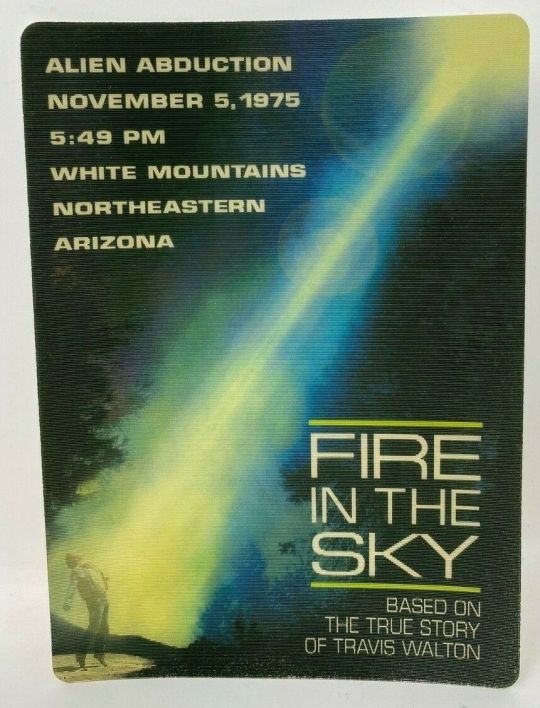

19 notes
·
View notes
Text
Who Ya Gonna Believe – The Problem with Medical Misinformation
By Marvin Ross
Covid highlighted this problem but it is more extensive than just covid as those of us working in serious mental illness know all too well. A recent survey in the US found that about 75% of doctors surveyed felt that misinformation negatively impacted their ability to treat patients and negatively impacted their patient outcomes. But its not just covid. Almost 70% said that…
View On WordPress
0 notes
Text
Gaining & Maintaining Power: A Reading List
Power & Manipulation
48 Laws of Power by Robert Green
The Prince by Machiavelli
Games People Play: The Basic Handbook of Transactional Analysis by Eric Berne
The Dictator's Handbook: Why Bad Behavior is Almost Always Good Politics by Bruce Bueno de Mesquita
Power: Why Some People Have It - And Others Don't by Jeffrey Pfeffer
The Wisdom of Psychopaths: What Saints, Spies, and Serial Killers Can Teach Us About Success by Kevin Dutton
Charisma & Social Skills
How to Win Friends and Influence People by Dale Carnegie
Crucial Conversations: Tools for Talking When Stakes Are High by Kerry Patterson
How to Talk to Anyone: 92 Little Tricks for Big Success in Relationships by Leil Lowndes
The Charisma Myth: How Anyone Can Master the Art and Science of Personal Magnetism by Olivia Fox Cabane
Captivate: The Science of Succeeding with People by Vanessa Van Edwards
Never Eat Alone, And the Other Secrets to Success, One Relationship at a Time by Keith Ferrazzi
The Like Switch: An Ex-FBI Agent's Guide to Influencing, Attracting, and Winning People Over by Jack Schafer
Persuasion
The Art of Seduction by Robert Green
Influence: The Psychology of Persuasion by Robert Cialdini
Win Bigly: Persuasion in a World Where Facts Don't Matter by Scott Adams
Pre-Suasion: Channeling Attention for Change by Robert Cialdini
Win Your Case: How to Present, Persuade, and Prevail, Every Place, Every Time by Gerry Spence
Nudge: Improving Decisions About Health, Wealth, and Happiness by Richard Thaler
Methods of Persuasion: How to Use Psychology to Influence Human Behavior by Nick Kolenda
You Can Read Anyone: Never Be Fooled, Lied to, or Taken Advantage of Again by David Lieberman
Influencer: The New Science of Leading Change by Kerry Patterson
Psychology
Thinking, Fast and Slow by Daniel Kahneman
The Art of Choosing by Sheena Iyengar
Drive: The Surprising Truth About What Motivates Us by Daniel Pink
Predictably Irrational: The Hidden Forces That Shape Our Decisions by Dan Ariely
Emotional Intelligence by Daniel Goleman
The Laws of Human Nature by Robert Green
Philosophy and Mindset
Meditations by Marcus Aurelius
Letters from a Stoic by Seneca
Man's Search for Meaning by Viktor Frankl
Mastery by Robert Green
The Law of Success by Napoleon Hill
Antifragile: Things That Gain from Disorder by Nassim Taleb
The Daily Stoic by Ryan Holiday
Ikigai: The Japanese Secret to a Long and Happy Life by Hector Garcia
Public Speaking, Rhetoric, and Debating
Rhetoric by Aristotle
How to Argue & Win Every Time by Gerry Spence
The Quick and Easy Way to Effective Speaking by Dale Carnegie
The Art of Public Speaking by Dale Carnegie
Talk Like TED: The 9 Public Speaking Secrets of the World's Top Minds by Carmine Gallo
Verbal Judo: The Gentle Art of Persuasion by George Thompson, PhD
Thank You for Arguing by Jay Heinrichs
p.s. a lot of these can be found on z-library.
xoxo ❤️
#ref#reference#reading list#books#persuasion#power#influence#seduction#manipulation#charisma#social skills#social climbing#networking#leveling up#level up#femme fatale#female manipulator#it girl#self improvement#mental glow up#books & libraries
10K notes
·
View notes
Note
Horror movies to watch?
the black cat (edgar g. ulmer, 1934)
the hitcher (1986, robert harmon)
seance (2000, kiyoshi kurosawa)
psychic (1977, lucio fulci)
martin (1977, george a. romero)
splatter: naked blood (1996, hisayasu satō)
just before dawn (1981, jeff lieberman)
guinea pig: mermaid in the manhole (1988, hideshi hino)
the funhouse (1981, tobe hooper)
it's alive (1974, larry cohen)
the masque of the red death (1964, roger corman)
intruder (1989, scott spiegel)
blood rage (1987, john grissmer)
the prowler (1981, joseph zito)
the strangers: prey at night (2018, johannes roberts)
the empty man (2020, david prior)
spider baby (1966, jack hill)
the devil rides out (1968, terrence fisher)
two thousand maniacs (1964, herschell gordon lewis)
the night of the hunted (1980, jean rollin)
bloody muscle body builder from hell (1995, shinichi fukazawa)
evil dead trap (1988, toshiharu ikeda)
342 notes
·
View notes
Text
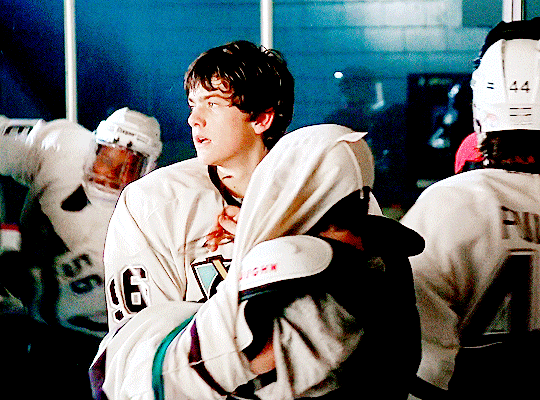

CHARLIE CONWAY & ADAM BANKS
D3: THE MIGHTY DUCKS (1996) dir. robert lieberman
#the mighty ducks#d3 the mighty ducks#charlie conway#adam banks#banksway#charlie x adam#usergaffney#disneyedit#filmtvcentral#cinemapix#mine#mine: gifs#mine: tmd#d3: the mighty ducks#tmd trilogy#movies#adam (internally): 250k slow burn friends to enemies to friends to lovers
147 notes
·
View notes
Photo




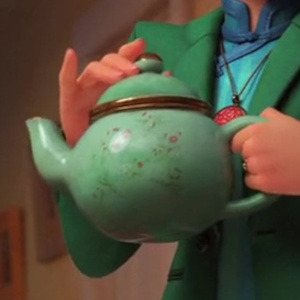




Teapots from the Interim (August - October 2023)
The Velvet Vampire | Stephanie Rothman | 1971
The Ghost Train | Walter Forde | 1941
4 O'Clock | Robert Flanagan | 2021
Mumsy, Nanny, Sonny and Girly (AKA Girly) | Freddie Francis | 1970
Turning Red | Domee Shi | 2022
Blue Sunshine | Jeff Lieberman | 1977
Barbie | Greta Gerwig | 2023
Saint Maud | Rose Glass | 2019
Guest House Paradiso | Adrian Edmondson | 1999
38 notes
·
View notes